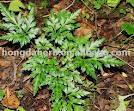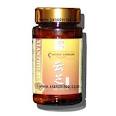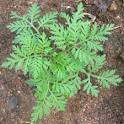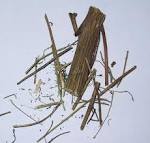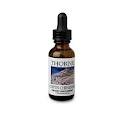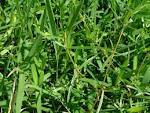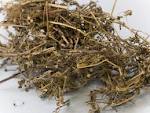
Using Herbs to treat Cancer: Traditional Medicine in a Modern World
From Rocky Montana
The simple fact that plants are a major source of many drugs is not a surprise to most. Penicillin comes from mold, Coumadin from sweet clover and aspirin from the bark of the white willow. Many of the most effective cancer drugs are also plant derived such as Vincristine (from periwinkle), Etoposide (from mayapple) and Taxol (from the pacific yew tree).
In China and Japan, the mainstream medical opinion is that supplementing chemotherapy with traditional herbal formulas can improve survival rates and life expectancy of cancer patients. Skeptics might doubt any herbal effect but for cancer patients, it raises a very simple question, “What does the research say?”


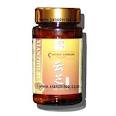
Turkey Tail Mushroom (Coptis Versicolor) Ground mushroom capsules
Coriolis Versicolor, the common Turkey Tail Mushroom, has over 400 published studies including several long term human clinical trials confirming its cancer killing, anti-metastatic, and immune enhancing effects. (1-9) It is referred to as a Biological Response Modifier as it improves the patients own anti-tumor response (10). Researchers at the St. Mary’s Medical Center in San Francisco reviewed several randomized clinical trials and agreed with the Japanese Ministry of Health that this common mushroom significantly improves survival rates and lifespan for gastric, esophageal, colorectal, breast and lung cancers (9).
Artemisia annua Dryed roots Root liquid extract
(Qing Hao)
Artemisinin annua (Qing Hao), commonly known as sweet wormwood, has recently gained fame as the best treatment for quinine resistant malaria. A University of Washington study shows Artemisinin selectively kills several cancer cell lines in the test tube. It worked against breast cancer cells but was most effective for aggressive forms of pancreatic and leukemia cell lines (14,15). Artemisinin damages cell membranes by reacting with iron, high concentrations of which are found in both the malaria parasite and quickly dividing cancer cells. Researchers observed cancer cells resistant to chemotherapy were still killed by aremisinin (16).
Oldenlandia Dryed leaves Ground leave granules
(Bai Hua She She Cao)
Oldenlandia (Bai Hua She She Cao) is used traditionally for snakebite or any conditions of heat due to toxin. The Journal of Herbal Pharmacotherapy published an article in 2004 that showed oral doses of Bai Hua She She Cao inhibited lung cancer growth and metastasis in rats and eight other cancer cell lines in the test tube (12).
In the near future, America’s healthcare will be very similar to what is found in China and Japan: an integrative system that takes the best of all worlds for the benefit of the patient. Clearly, herbs can be potent medicines and in the case of the turkey tail mushroom a clinically proven complementary option for stomach, colon, lung and throat cancer.
Patrick Paine is a cancer survivor. He is a California licensed acupuncturist with a Masters Degree in Traditional Chinese Medicine. He spent a summer at Zhe Jiang University in China studying the use of traditional Chinese medicine for cancer patients. He currently practices at two clinics, one in Saratoga and the other near his home in Santa Cruz. He can be reached at (408) 608-4814.
Questions can be sent to his email address patrick@tccwc.com.
For more information on this topic and many others please go to the website, treatpaineacupuncture.com/
DISCLAIMER: The information contained in this article has not been evaluated by the Food & Drug Administration. It is not meant to diagnose, treat, cure or prevent any disease. Individuals suffering from any disease or illness should consult with a physician or health care professional.
1.Torisu M., Hayashi Y., Ishimitsu T., Fujimura T., Iwasaki K., Katano M., Yamamoto H., Kimura Y., Takesue M., Kondo M., and Nomoto K. Significant prolongation of disease-free period gained by oral polysaccharide K (PSK) administration after curative surgical operation of colon cancer. Cancer Immunology Immunotherapy, 31:261-268 (1990).
2.Hayakawa K., Mitsuhashi N., Saito Y., Takahashi M., Katano S., Shiojima K., Furuta M., and Niibe H. Effect of Krestin (PSK) as adjuvant treatment on the prognosis after radical radiotherapy in patients with non-small cell lung cancer. Anticancer Research, 13:1815-1820 (1993).
3. Ilino Y., Yokoe T., Maemura M., Horiguchi J., Takei H., Ohwada S., and Morishita Y. Immunochemotherapies versus chemotherapy as adjuvant treatment after curative resection of operable breast cancer. Anticancer Research 15:2907-2912 (1995).
4.Nagao T., Komatsuda M.., Yamauchi K.., Nozaki H.., Watanabe K.., Arimori S. Chemoimmunotherapy with Krestin (Coriolus)in Acute Leukemia. Tokai J Exp Med., Vol. 6. No. 2, pp.141-146, 1981.
5.Nakazato H., Koike A., Saji S. et al. Efficacy of immunochemotherapy as adjuvant treatment after curative resection of gastric cancer. Lancet, 343-1122-1126 (1994).
6. Hu, Y., et al . Pharamacological Studies of the Effects of PSP on Analgetic Action and Appetite Improvenent. PSP International Symposium, 125-131 (1993).
7. Yang, M., et al .The Anti-tumorous Function and Clinical Significance of Yun Zhi Essence. PSP International Symposium, 221-223 (1993).
8. Yang, Q., et al .The Comparative Analysis of the Extracts of the Mycelia and the Fruitbodies of Yun Zhi (Coriolus versicolor). PSP International Symposium, 41-55 (1993).
9) Anticancer Res. 2002 May-Jun;22(3):1737-54
10) Lin HL, et al. Up-regulation of multidrug resistance transporter expression by berberine in human and murine hepatoma cells. Cancer 1999;85:1937-42
11) Clin Exp Pharmacol Physiol. 2004 Jan-Feb;31(1-2):65-9.
12) Journal of Herbal Pharmacotherapy: 2004 Feb: 4(1): 21-
13) J Am Cell Nutr 11(2): 192-8, 1992
14) Selective cancer cell cytotoxicity from exposure to dihydroartemisinin and holotransferrin, Cancer Letters 91 {1995} 41-46)
15) The anti-malarial artesunate is also active against cancer, International Journal of 16)Oncology, 18 {2001} 267-773
International Journal of Oncology 18; 767-773, 2001 by Efferth, et al

